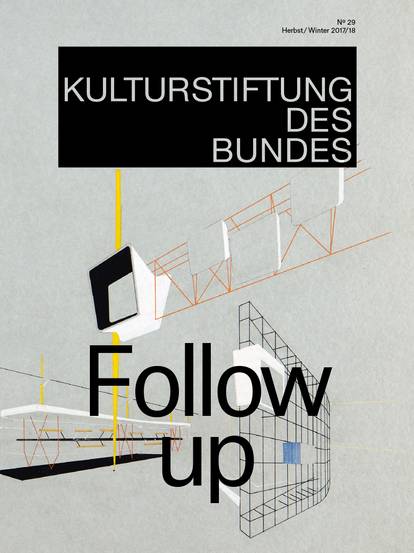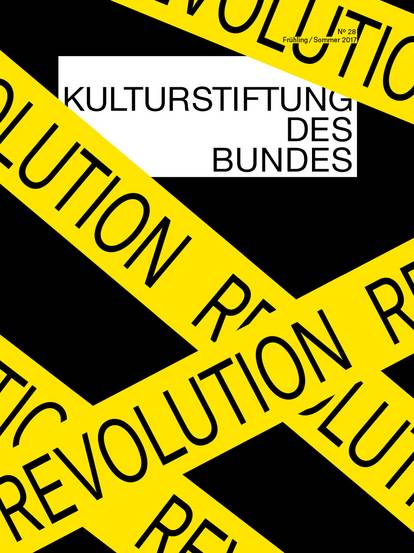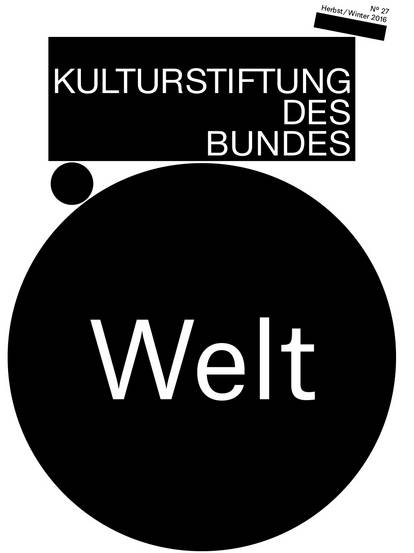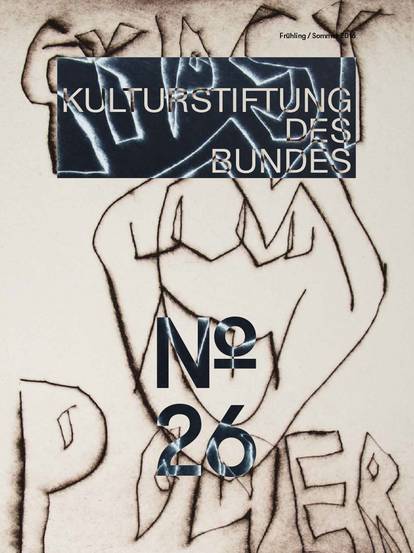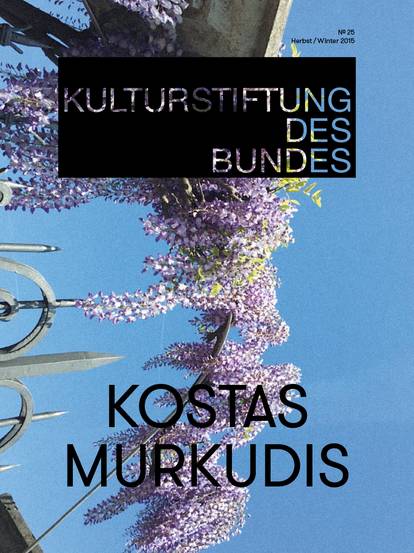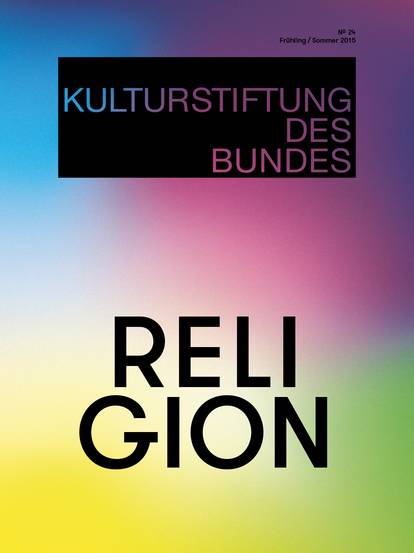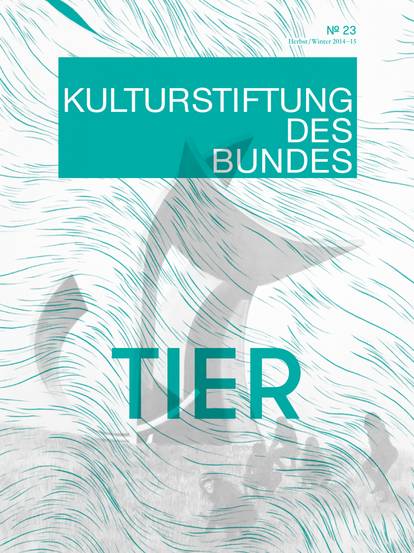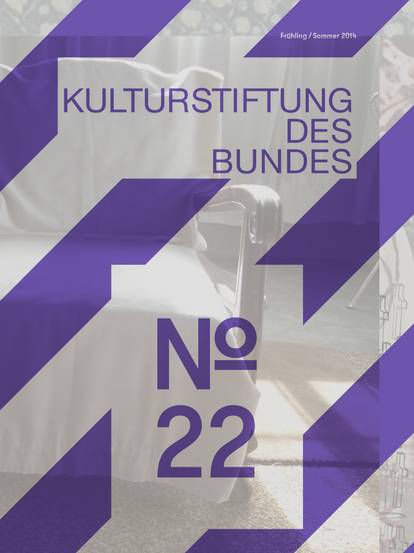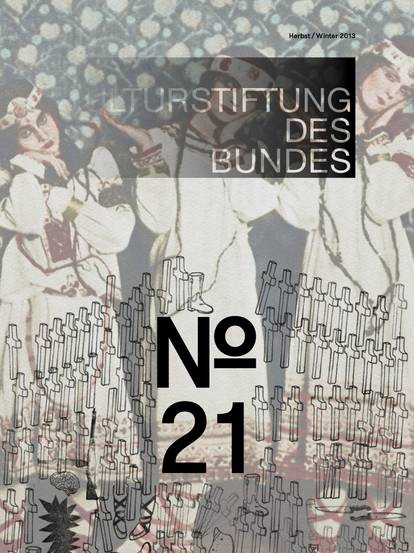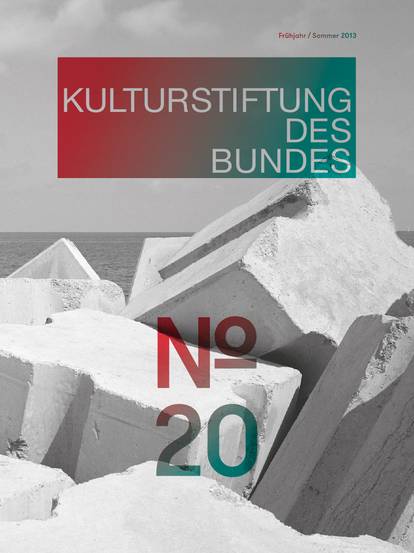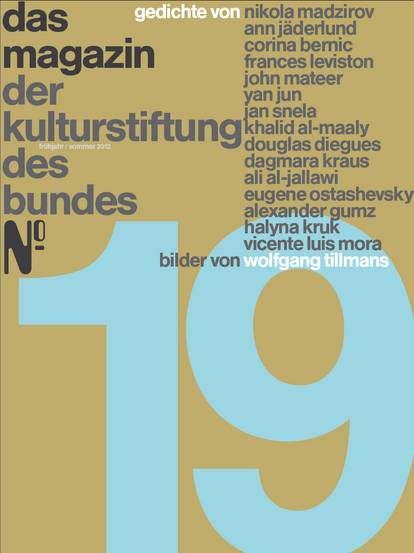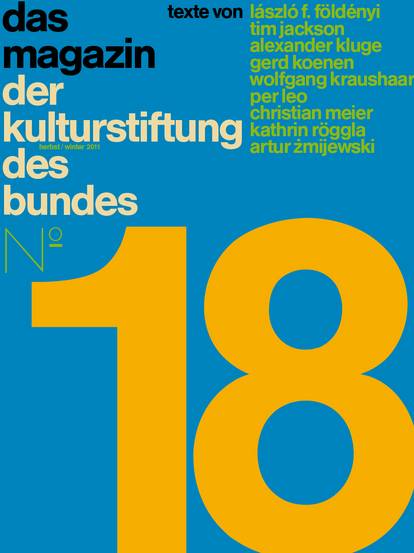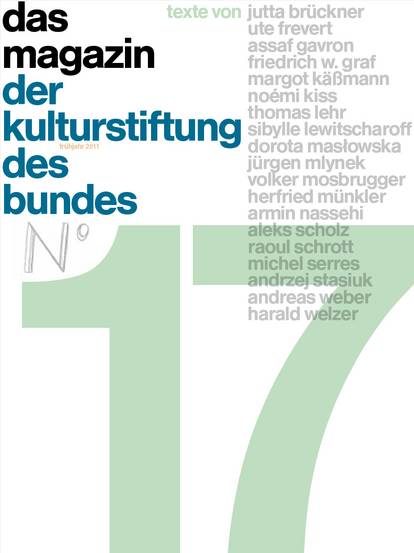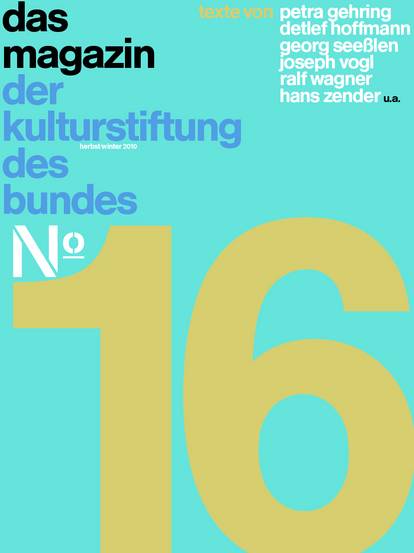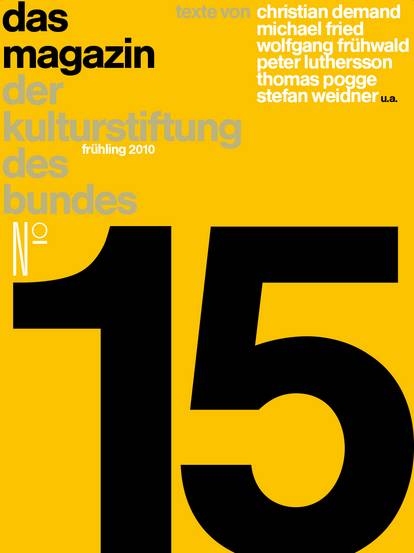This issue of our magazine offers readers a glimpse of the many activities we support at the German Federal Cultural Foundation. We provide one-time grants to special projects (such as the exhibition on Lawrence of Arabia), initiate longer-term projects (e.g. the Wanderlust Fund), finance Germany’s internationally renowned beacons of culture for several years at a time (e.g. the Ensemble Modern) and organize our own events. The festival The Undead. Life Sciences & Pulp Fiction is one such major event, scheduled to take place at Kampnagel in Hamburg from 12 to 14 May 2011. The festival sees itself as a platform for scientific and artistic projects which probe the changing definitions of (human) life in the biotechnological age. The event will examine to what extent the conventional boundaries separating life and death, nature and artificiality are becoming blurred. In the space between life and death lies an anthropological and ethical grey zone which, in affluent regions, has sparked a lively debate on comatose patients, assisted suicide and living wills. A growing feeling of uneasiness has accompanied the medical advances that claim to improve our standard of living (e.g. cosmetic surgery, medicinal optimization, prosthesis implantation). The technological possibilities to create and prolong life could eventually dismantle one of the last bastions of cultural history, namely, the belief that life and death are uncontrollable events. We hope that the event will initiate a debate on whether the creation of life and the encounter with death are becoming more and more like ‘projects’ which require individual decisions and a special framework of social conditions. To what extent is ‘artificial’, i.e. biotechnologically produced, medically perfected and mechanically aided extended life changing our attitudes of vitality and the quality of life? These new anxieties and problematic issues could be behind the recent barrage of fantastic visions of threshold beings, man-machine hybrids and creatures with limited vitality. Consequently, it’s not surprising that artistic and pop-cultural productions are currently awash with fears and utopias regarding new forms of human existence. Whenever science fails to provide adequate answers to moral and social issues, a surge of stories, images and myths arises. Pop culture, especially film and literature, has long been dealing with basic anthropological issues based on undead characters, like zombies and vampires, well before the scientific, political and legal fields began addressing the problem of ‘natural life’. In this issue we have invited six writers from the fields of science and culture to examine the biotechnological developments and their impact on how we view life and death. The illustrations also explore this subject. This time we’ve decided to print comics – a genre with a long history of ‘undead’ characters. Each episode is based on texts by writer Dietmar Dath who reflects on the historic development of the undead motif.
Hortensia Völckers Alexander Farenholtz
Executive Board of the German Federal Cultural Foundation

![[Translate to English:] Magazine 38](/fileadmin/_processed_/f/1/csm_Magazin38_Cover-Vorschau_921x1230_689f428dc3.jpg)
![[Translate to English:] Magazine 37](/fileadmin/_processed_/b/c/csm_Mag37_Cover-Vorschau_921x1230_b5129fdb2a.jpg)
![[Translate to English:] Magazine 36](/fileadmin/_processed_/2/a/csm_Cover_Magazin36__issuu_2f3cef97bb.jpg)
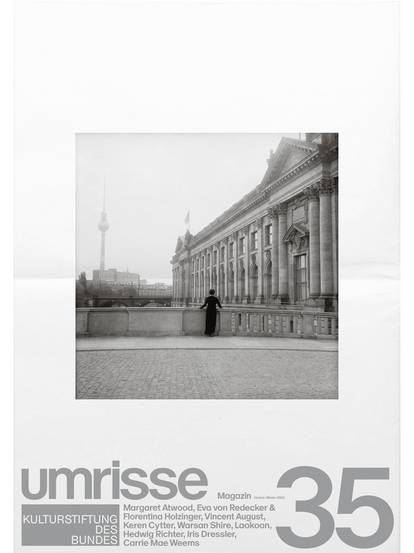
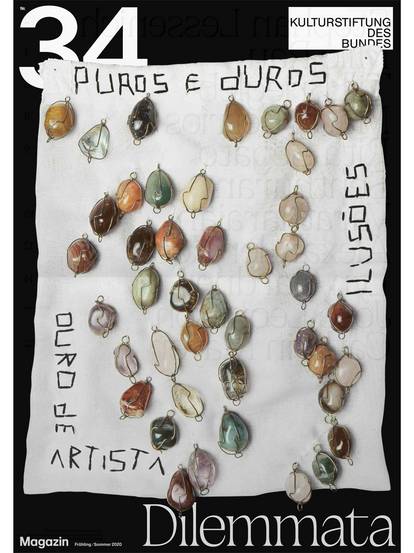
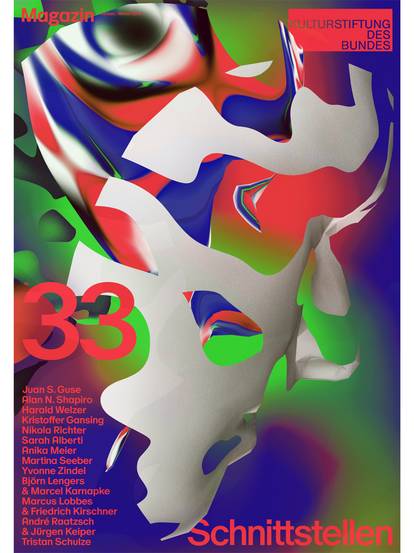
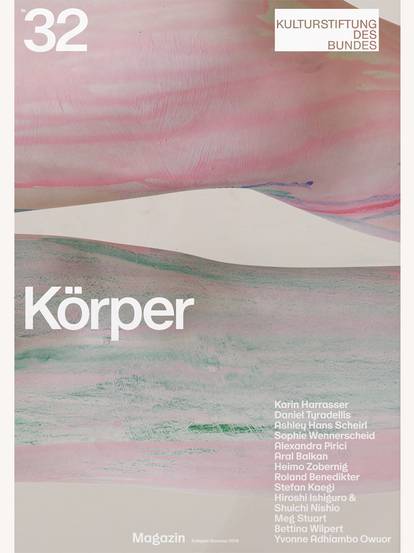
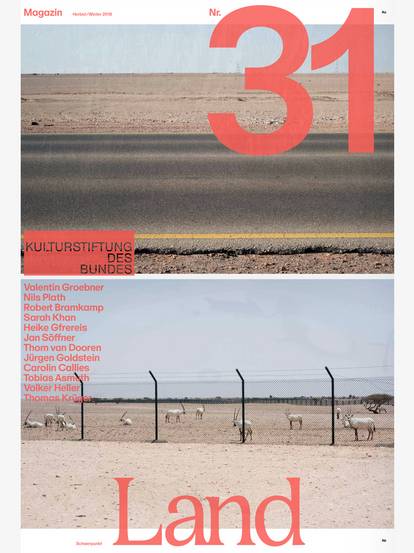
![[Translate to English:] Magazine 30](/fileadmin/_processed_/c/b/csm_magazin30_vorschau_9005f773d3.jpg)
